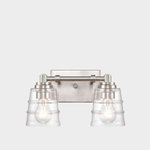Michigan Bulb Rose infected with (confirmed in lab)Rose Rosette
Back story: Michigan Bulb sent me a Rose infected and CONFIRMED in writing by lab tests from Penn State University. Now over 5 Years if Rose growing in the FRONT of my house has to be destroyed due to their diseased rose, and I am still crying over it writing this story.
I live in central New York, and I have been a Gardner since I was little, always helping my neighbor who was a Master Gardner. Having my own house for 7 years now, I relish the opportunity to landscape to my hearts content. So when I thought I found the perfect rose to fill a pace vacant for 3 years, in a Michigan Bulb catalog, I was thrilled. Now I have over 12 varieties of roses in my back yard, and before the Michigan bulb Blue Girl rose 4 in the front of the house. For over 3 years, the front roses (AND the back) have been healthy and thriving plants. I have pictures starting in 2006 to show these plants were there and healthy long before the Michigan Bulb Purchase.
Timeline:
4/21/2009 - Rose arrived and goes into the ground the same (I know the day because my 3 year old helped me and I snapped a picture of her)
6/10/09 - I notice signs of the Michigan Bulb rose showing bright red canes, rubbery thorns. I dismiss this since it is a new rose and maybe has these growth traits.
6/29/09 - I notice one of my existing roses setting off a HUGE tall cane, with stubby leaves, and a million thorns
7/20/09 - After reading many books and researching I think this is Rose Rosette. I research Penn State will do Plant testing. I overnight samples, photograph plants.
I also begin Email correspondence with various customer service agents and "master gardners" (I highly doubt they are by their inability to know basic rose terminology)
7/30/2009 - Get results in the mail from the University, confirmed by Penn State my worst fear is correct.
8/24/2009 - Consult with several Master GardenersÂ, and learn the odds of the disease being in the area 'naturally' infecting the new rose FIRST just weeks after planting (since it showed advanced signs of the disease just weeks after being planted)and no other rose that has been planted and thriving in the same locations for years are EXTREMELY unlikely.
10/21/2009 - I get a letter telling me, basically I can't prove their rose diseased my yard, even though all the logical and lab results point out they ARE at fault.
Results - I now have to remove all my front roses, and pray it hasn't spread to my dozens of roses in the back yard. GardnerÂs, I can't tell you how excited I was to find a unique rose to put in a place I had set aside for years, knowing I will know the rose when I see it (FYI this location is the prime spot you see when you walk onto my front porch) I KNOW my neighbors do NOT have ROSES, I KNOW no roses have showed signs of this disease in the past 3 years out front, not until the blue girl rose from Michigan Bulb was planted. This is my front yard, and all those years of rose tending, trimming (including my prize 4+ ft tall 3+ ft wide Yellow Hybrid, my PRIZED rose) all has to be burned. The coldness of Michigan Bulb astonished me; I have used this company for so many years. Upon lawyer consults, I learned while I am pretty much guaranteed to win any case due to the portfolio of pictures, emails, and lab results I have compiled to make my case, the cost of taking them to court will be in the tens of thousands. How can ANYONE afford that? My pathetic recourse was to take them up on their "lifetime guarantee" and get a refund for every plant I ever bought. They sent the checks, and it didnÂt even cover the lawyer consults. I haven't cashed them. If anyone out there can find a way to get these people to pay to ATLEAST remove the diseased roses they are responsible for and put new dirt in so the front of my home can have roses again. I don't know what this country has come too, if a company can sell you DISEASED AND DISEASE SPREADING PLANTS and GET AWAY WITH IT!! I have MANY pictures to document this story, and many more if anyone wants to see more.
Please see some pictures : http://share.shutterfly.com/action/welcome?sid=0Abs2bhi0ZMmTjQ
Comments (11)
kstrong
14 years agolast modified: 9 years agoSmall claims courts were just made for these types of situations. Figure out your damages (i.e. money spent on rose, money spent on diagnosis and money spent or to be spent on replacing other roses and/or otherwise getting rid of the problem) and file a small claims court complaint. The internet link to the court in your area will have directions on how to do that.
Different states have different rules as to whether you can also collect damages for the value of your time spent dealing with the problem -- do some internet research and then add that in if it's allowed in your state.
Kathy
hoovb zone 9 sunset 23
14 years agolast modified: 9 years agoSorry for your loss.
Michigan Bulb doesn't have a stellar reputation. Did you know that before you bought?
Related Professionals
Arlington Landscape Architects & Landscape Designers · Ilchester Landscape Architects & Landscape Designers · Alexandria Landscape Contractors · Concord Landscape Contractors · El Mirage Landscape Contractors · Gainesville Landscape Contractors · Hoover Landscape Contractors · Kearny Landscape Contractors · Lynn Landscape Contractors · Melrose Landscape Contractors · Merced Landscape Contractors · Mercedes Landscape Contractors · Reedley Landscape Contractors · San Antonio Landscape Contractors · Seven Hills Landscape Contractorslavender_lass
14 years agolast modified: 9 years agoI am so sorry about all the trouble you've had with your roses! How very sad to spend so much time and work (not to mention money) on your garden and have it come to this.
henry_kuska
14 years agolast modified: 9 years agoHave you considered the possibility of residual Round-Up damage? i.e. did you use Round-Up to prepare the planting area? I understand that the state lab confirmed the RRD, but how did they confirm it? What chemical or other test did they use?
lavender_lass
14 years agolast modified: 9 years agoZone5agreenthumb- I'm sure if you'd known of Michigan Bulb's bad reputation, you wouldn't have purchased your rose from them.
I'm sure we all feel for your loss and the emotional toll something like this can take on you. At least there's hope that some of your roses may not be infected.
If you want a more sympathetic response after this terrible experience (no offense meant) try the cottage garden forum. It's easy to point out that someone may have made a mistake with a particular purchase, but I'm guessing a little moral support might be in order, too.
zone5agreenthumb
Original Author14 years agolast modified: 9 years agoWell I consulted with two attorneys, costing me $150 between the two. In NY, since the company does not reside in this state it would have to go to State court. State court cost cannot be reclaimed in a "settlement" and both independantly informed me the cost of the filing and retainer would be a few thousand. The settlement I would expect wouldnt even cover that.
I had NO idea about the reputation of this company, my goodness. I guess it is my fault for not searching out their reputation. I scanned these forums and hadn't seen any negative things about MB, but I did not Google. I guess my payment for my loss is getting the word out.
As far as the What Penn State told me, their is no test but symptoms and growth patterns of RRD, since it is a mite and not a fungal spore they can smear. They were very sure of the diagnosis. I over nighted carefully wrapped and packaged cuttings, they told me their was not even a wilted leaf when they got the package 3 days later.
Thanks for your sympathies, I cant tell you how nice it is to hear understanding, not pity but understanding of the time and love one can put into their roses. If it was a a "regular" infection, I would be so sad, but that's life when your hobbies include living things. If each of you could just tell one more person not to buy from MB, oh how gratifying it will be to hope to keep another gardener from experiencing this. Also, any suggestions on where to post my story to continue to get the word out would be so appreciated. God Bless, and have a wonderful Christmas and Hanukkah and Kwanzaa season.
erasmus_gw
14 years agolast modified: 9 years agoWell, from what I hear Round-up damage can look like RRD so if there is no test that does a chemical analysis or can id it with something like an electron microscope I don't know how they can be so sure. Not saying they're not right but I don't know how they can be sure.
anntn6b
14 years agolast modified: 9 years agoDid Blue Girl show other symptoms of RRD?
Did the canes that started red turn green? Or did other symptoms arise on that bush?Transmission within a garden seldom has ever happend in that sort a period of time. The vector mite populations don't spike until September in zone 5 conditions (this from the juried scientific literature.)
When the rose arrived at your home from Michigan Bulb, was it leafed out, or was it bare of leaves, and had it been dipped in wax?
You may not have heard of RRD before this happened. Most people haven't. But you might want to consider that the disease has been to the north of you in Canada, to the south of you in Pennsylvania, in every county in Ohio to the west of you. And so far, I've seen it to the east of you in the BBG in Brooklyn...in the middle of the city.
The vector mites are easily carried by winds and fall infections on hybrid teas show most often in new growth the following spring. This I know from my own garden experiences and it fits what others see, as well.
There is no way to say where the vector mites came from that infected the rose in your garden that is near your new rose. (And there is no lab test to identify the disease; experienced plant pathologists depend on a collection of symptoms for identification.)
There is NO reason to tear up an entire rose bed. As suggested above, remove the sick rose(s). That's what we do when other diseases strike and it works for RRD.
Do look upwind of your home for Rosa multiflora. You may find it along stream beds or even growing up into trees. With the disease pressure on roses to the north west and south of your state, RRD is moving into New York, even though it doesn't get talked about.
Good luck. Don't panic or make yourself ill about this.
I can say this because I've been dealing with RRD in my garden for ten years. I continue to grow roses. I loose a couple of plants each year to RRD. There's RRD in wild roses three miles away. It's become a fact of life, but I can enjoy the ones that live and try to mourn the ones I loose....a lot like life, really. My E-book linked below has twelve chapters about rose rosette as well as a FAQ. It's based on a lot of visiting other gardens with RRD in them as well as a lot of research. The Bibliography at the back is up to date, science wise, if you can stand to read about the intentional spread of RRD to kill multiflora.
york_rose
14 years agolast modified: 9 years agoIf it's RRD, unless the infection occurred in your yard it would have happened wherever the rose had been grown. Based on the very little I know about Michigan Bulb, I doubt they grew the rose themselves. I think they probably purchased it from a wholesale grower, but where that grower is located is anybody's guess, and so it's impossible to know about the RRD pressure faced by the grower, as well as the grower's integrity.
Many plant growers are dependable folks, but there are also shysters out there. Given that Michigan Bulb Co. works the cheap end of the market my guess is that their suppliers are more likely to be shysters than would be the case with a company working the high end.
When I was in my 20's I worked for a small wholesale grower of azaleas and rhododendrons. We used to sell thousands of rooted azalea cuttings to Michigan Bulb Co. every year. I wasn't very involved in that part of the business (I took the cuttings in the summer, and sometimes stuck them in flats, but that was it). However, to the best of my recollection we always shipped them decent rooted cuttings, but I have no idea whether or not Michigan Bulb Co. has any quality control standards when it comes to whom they buy their product from.
york_rose
14 years agolast modified: 9 years agoAnn is this forum's resident RRD expert, so her info. is very much worth seeking out. Mites come in many shapes & sizes (including lots of species that eat plant pests), but the ones that carry the RRD virus from rose to rose are too small to see without a very good magnifying glass, good light, and a lot of luck. They're a good bit smaller than the apostrophe you see on this forum's font (although that apostrophe is a decent approximation of their body shape). It's because they're so small that they are carried on the wind.
I don't face this problem yet in the Boston area, but I know that sooner or later it will show up here, too.
:(











karl_bapst_rosenut